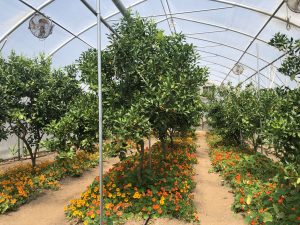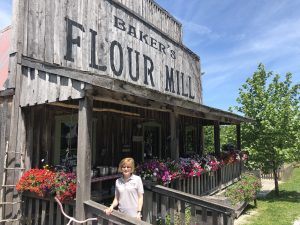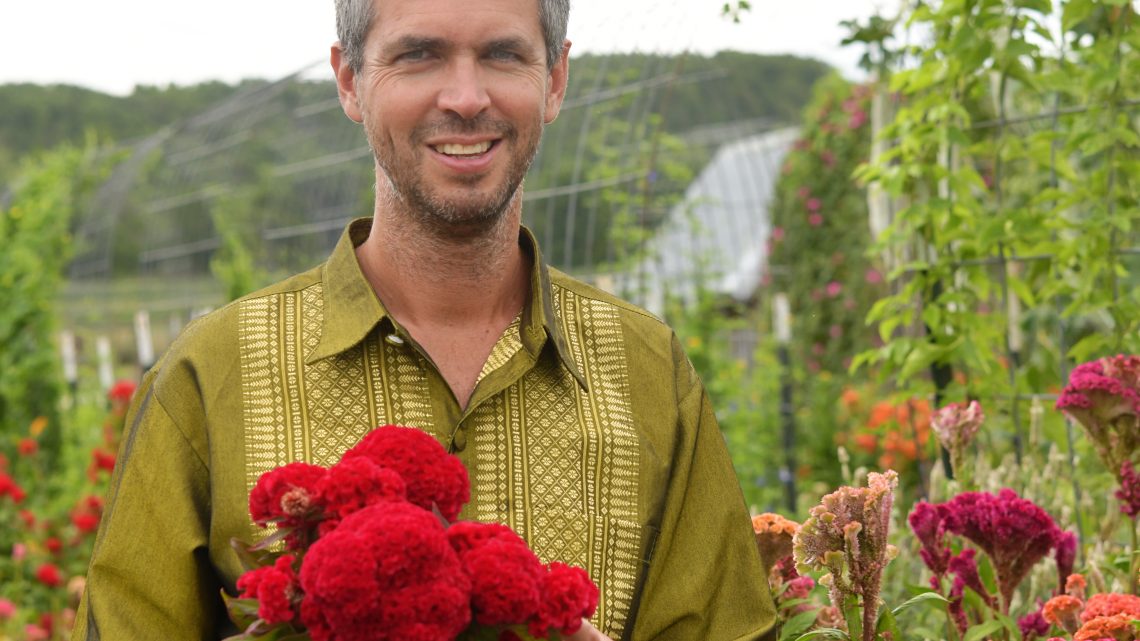There are two major areas where I believe the windows are currently wide open in the world for more robust conversations and information sharing: human health and care of the environment.
When I learned about Baker Creek Seeds a few years ago and how they are so skillfully and graciously combining these two areas, I was fascinated and began the process of requesting and scheduling an interview with the founder/owner, Jeremiath Gettle.
While I waited, I learned all I could from their website: rareseeds.com. Located in the rolling Ozarks near Mansfield, Missouri, the Baker Creek village includes trial gardens, greenhouses, an old-time mercantile, herbal apothecary, natural bakery, vegan restaurant and many breeds of historic poultry and livestock—all on the homestead where Jere started the business as a teenager.
There are also two barns used for old-time music and modern presentations during their summer heritage festivals, started in 2000 as a way to bring gardeners, homesteaders and natural foods enthusiasts together to exchange ideas and seeds and learn from renowned experts.
The stated mission of Baker Creek is to “provide the seeds of a sustainable food supply for everyone and keep heirloom varieties alive for future generations.” Since they sell only heirloom varieties, all their seeds can be saved, shared and traded.
Finally, the day arrived for which I had been eagerly waiting. It was warm and sunny when my husband and I arrived at Baker Creek. We were met by Jere’s assistant, Kim, who said Jere would be ready for our interview shortly. Kim told me Jere travels the world, always looking for new seeds. She also said they have gardens that are exclusively for photo shoots for the seed catalog—a thick, full-color book of which they printed 1.5 million for 2022.
From seeds to sprouts
Jere Gettle, barefoot and wearing a T-shirt and shorts, walks carefully and calmly among a swath of assorted blooms in the “tile garden” as he talks on his cell phone. The space is divided into many square planting boxes by assorted ceramic-looking tile borders.
A few minutes later when I shake Jere’s hand he flashes a ready smile and asks if I’d like to sit in the gardens while we talk. He moves an iron bench into the shade and we settle in for a conversation I have been looking forward to for over a year. Jere talks easily, and answers all my questions, plus.
As we talk about seeds and pollinators Jere’s bare toes are absently brushing the plant closest to where we sit. “What is that one?” I ask. He hops up and checks the tag. “Gaillardia, double sunset. An old native variety from the 1800s that makes a big puffy flower.”
When I ask about his earliest memory of gardening Jere says, “I grew up gardening. My grandmothers and my parents all gardened. My aunts and uncles gardened, the neighbors gardened—pretty much everyone I knew gardened. When I was two-and-a-half, I started planting things and watching them grow.”
Did this early start fuel his passion for the heirloom seed business? I wondered. “When I got older I started joining seed organizations like Seed Savers Exchange and when I was 17 I started sending out a catalog that I created in my bedroom. Little by little, the business has taken off and now it’s the largest heirloom seed company in the United States.”
Jere tells me they have over 100 employees now, counting seasonal help in the gardens and the workers building new greenhouses. Every single employee I meet during the day smiles and is friendly and helpful.
Building community through plants
Charitable giving is a foundation of Baker Creek’s thriving business. Working with non-profit organizations, a significant portion of their annual profits goes toward providing food, emergency aid, sustainable development and education to people in the U.S. and abroad. “My goal is to fund more projects through ADRA or ASAP ministries in southeast Asia, supporting missionaries and teachers and wells for local villages there,” Jere explains. “We also donate a lot of different seeds to school gardening projects here in the U.S. and to prison gardens and community gardens and orphanage garden projects.”
I’m very interested in how Jere describes the link between human health and heirloom seeds. “A lot of people aren’t connected with what they are eating. It’s so processed, not healthy and nutritious. When you are gardening, you are out in nature with fresh air, and eating more fresh fruits and veggies. And you get to care for the environment in a-good-for-yourself, good-for-your-neighbor way without spraying chemicals. In a few weeks these gardens where we are sitting will be filled with butterflies—monarchs, swallowtails and various others. The more diverse our landscapes, the better our natural environments will be.”
When I ask about the cookbook he and his wife Emilee co-authored over 10 years ago, Jere replies that it’s a little dated now and revising it is not a high priority. “Lots of people are doing vegan cookbooks these days,” Jere casually observes. “It’s not unique anymore.” He seems pleased to tell, however, that the seed catalogs went like hotcakes and they were currently out of stock.
A longer table
As we slowly ride in his golf cart down to one of the greenhouses, Jere’s kind heart is evident in the way he cheerfully greets employees along the way and thanks them sincerely for what they are doing.
During my greenhouse tours my guide explains the current uses of each one and procedures they use. She even tells me how they install sun shades when I ask about it for our own little greenhouse at home. She tells me the cooks come to the kitchen gardens regularly to harvest.
She gives me a small turmeric plant and answers my questions about it since I’ve never grown turmeric.
After my greenhouse tour I meet Michelle, Jere’s agent with whom I have been corresponding to arrange this interview. Like everyone else at Baker Creek, she smiles warmly and welcomes me. She is eager to accommodate my request for professional photos.
By now it’s lunch time and my husband and I walk down to The Mill, where we’ve been told we can get a bite to eat. We open the ancient door and are instantly overcome by the fragrances wafting on the air—freshly baked sourdough bread, focaccia, cinnamon rolls and a variety of fried berry tarts…not to mention the savory smells of spaghetti in homemade sauce with fresh herbs from the kitchen garden. We’ve heard the kitchen is managed by Jere’s mom.
Everything has a homey feel, from the sunbonnets hanging on the wall to the antiques everywhere you look. I’m particularly taken with the words lettered on a piece of fabric and attached to the front of the pastry showcase: “When you have more than you need, build a longer table, not a higher fence.”
A young woman with thick, blonde braids hanging down her back smiles and asks what she can get for us. She’s wearing a peasant-style dress with a pinafore. We ask a few questions while making our choices—we select a number of items—and she totals it up with a calculator. When we don’t have enough cash with us to pay for it all she says, “Oh, you can pay with a card up at the seed store. Just tell them how much.”
Why am I surprised at such trust?

At the mercantile we browse a bit before paying. There are hundreds of packets of new and rare seed, a number of types of preserved foods, and a lovely variety of gift items including door mats woven by a local Amish gentleman who is blind. All the prices are reasonable. I choose a Baker Creek T-shirt with a picture of watermelons and radishes on the front and limit myself to only one packet of seeds: Falling in Love Poppy.
But when we check out I get another seed packet at the register for free. Heirloom carrots. I go put on my new T-shirt in the sparkly clean restroom. The tag says “Sustainable Edition made in the USA of 100% organic combed cotton.” It’s amazingly soft…I think I’m falling in love with Baker Creek Seeds in general, not just those poppy seeds!
When we sit down on a bench in the open barn to eat, everything is remarkably fresh and delicious. Even the water tastes good at Baker Creek.
Read the full interview at outlookmag.org/jere-gettle-2022.
For more information about Baker Creek Seeds visit rareseeds.com.









